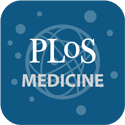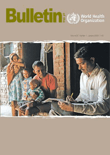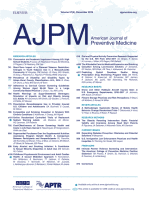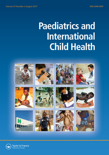
PLOS MEDICINE
Scope & Guideline
Advancing global health through open-access research.
Introduction
Aims and Scopes
- Global Health Research:
The journal publishes studies that address health issues affecting populations worldwide, including infectious diseases, maternal and child health, and chronic diseases. - Translational Medicine:
PLOS Medicine emphasizes research that translates basic science findings into clinical practice, aiming to bridge the gap between laboratory research and patient care. - Health Systems and Policy:
The journal explores health systems research, including evaluations of healthcare interventions, health policy analysis, and the economics of health interventions. - Public Health Interventions:
PLOS Medicine features research on public health interventions and their effectiveness in improving health outcomes, particularly in low- and middle-income countries. - Social Determinants of Health:
The journal investigates the social, economic, and environmental factors that influence health disparities and outcomes, promoting research that supports health equity.
Trending and Emerging
- Mental Health Research:
There is a growing emphasis on mental health, particularly in the context of the COVID-19 pandemic, addressing issues such as anxiety, depression, and the impact of social determinants on mental health outcomes. - Digital Health Interventions:
The journal is increasingly featuring studies on digital health technologies, including mobile health apps and telemedicine, which are becoming essential tools for healthcare delivery, especially post-pandemic. - Health Equity:
Emerging research highlights the importance of health equity, focusing on social determinants of health, health disparities, and interventions aimed at vulnerable populations. - Climate Change and Health:
Research addressing the health impacts of climate change is gaining traction, with studies exploring the intersection of environmental factors and health outcomes. - COVID-19 Related Research:
The journal continues to publish a significant volume of research related to COVID-19, including vaccine efficacy, public health responses, and the long-term implications of the pandemic on health systems.
Declining or Waning
- Traditional Clinical Trials:
There has been a notable shift towards observational studies and real-world evidence, with fewer traditional randomized controlled trials being published as the journal embraces diverse methodologies. - Basic Science Research:
Research focused solely on laboratory-based findings without direct clinical or public health implications appears to be waning, as the journal prioritizes studies that have clear translational relevance. - Single-Disease Focus:
PLOS Medicine has increasingly published research that addresses multi-morbidity and integrated health approaches, resulting in a decline in papers that focus exclusively on single diseases.
Similar Journals

BULLETIN OF THE WORLD HEALTH ORGANIZATION
Transforming Evidence into ActionBULLETIN OF THE WORLD HEALTH ORGANIZATION is a premier scholarly journal published by the World Health Organization, dedicated to advancing research and knowledge in the field of public health. With an ISSN of 0042-9686 and an E-ISSN of 1564-0604, this esteemed journal has been a significant source of information since its inception in 1945, offering insights and updates to researchers, professionals, and students alike. Recognized for its high impact within the field, the journal boasts a Scopus ranking of 31/665 in the categories of Public Health and Environmental and Occupational Health, which places it in the 95th percentile of scholarly publications. Moreover, it has garnered a prestigious Q1 quartile ranking in its category as of 2023, signifying its vital role in disseminating critical research findings and health policies. Located in Geneva, Switzerland, the BULLETIN encompasses a wide array of topics related to global health challenges, aiming to promote evidence-based practices and enhance collaborative efforts worldwide. Researchers seeking to publish groundbreaking studies or stay informed about the latest developments in the field will find this journal indispensable in driving public health advancements.

Journal of Health Research
Driving change through quality health scholarship.Welcome to the Journal of Health Research, an esteemed publication in the field of health policy and public health, published by COLL PUBLIC HEALTH SCIENCES at Chulalongkorn University, Thailand. With an E-ISSN of 2586-940X and an ISSN of 0857-4421, this open access journal has been dedicated to advancing scholarship since its transition to open access in 2018. The journal serves as a vital platform for disseminating high-quality research that addresses pressing health issues within both local and global contexts. It currently holds a Q3 rating in the categories of Health Policy and Public Health according to the 2023 Quartiles, and is ranked #395 in Public Health and #186 in Health Policy out of their respective categories on Scopus. With a commitment to fostering innovative approaches and interdisciplinary collaboration, the Journal of Health Research invites researchers, professionals, and students alike to contribute and engage in critical discussions that further the public health narrative.

Lancet Regional Health-Americas
Connecting Knowledge and Practice in the Americas' Health LandscapeLancet Regional Health-Americas is a premier open-access journal published by ELSEVIER, dedicated to advancing knowledge in the fields of health policy, internal medicine, and public health within the Americas. Established in 2021, this journal has quickly risen to prominence, achieving Q1 status in renowned categories such as Health Policy, Internal Medicine, and Public Health, Environmental and Occupational Health as of 2023. With impressive rankings, including a placement of #25 out of 310 in Health Policy and #68 out of 665 in Public Health, this journal exemplifies a commitment to impactful research and dissemination of critical health knowledge. The journal is accessible to a broad audience and promotes open scientific dialogue and exchange of innovative solutions to regional health challenges. Researchers, professionals, and students alike will find Lancet Regional Health-Americas a vital resource for the latest developments and discussions shaping the health landscape in the Americas.

JBI Evidence Synthesis
Bridging research and practice for a healthier tomorrow.JBI Evidence Synthesis is a premier peer-reviewed journal published by Lippincott Williams & Wilkins, dedicated to advancing the field of evidence-based practice in nursing. With an impressive Q1 ranking in the 2023 category of Nursing (Miscellaneous) and holding the rank of #25 out of 139 in General Nursing according to Scopus, this journal serves as a key resource for researchers, practitioners, and students alike. Its focus on synthesizing high-quality research evidence allows for the integration of best practices into clinical settings, thereby enhancing patient care and health outcomes. Since its inception, JBI Evidence Synthesis has been committed to promoting rigorous methodologies and innovative approaches in evidence synthesis, making it an essential publication for anyone seeking to contribute to the advancement of nursing and healthcare. The journal is available in both print and online formats, ensuring wide accessibility to critical knowledge in the field.

Central European Journal of Public Health
Fostering Insightful Discourse on Health and MedicineThe Central European Journal of Public Health, ISSN 1210-7778 and E-ISSN 1803-1048, is a vital academic forum published by the NATIONAL INSTITUTE OF PUBLIC HEALTH, Czech Republic. With its comprehensive coverage of contemporary issues in public health and medicine since its inception in 1993, this journal aims to bridge the gap between research and practice, fostering a deeper understanding of health dynamics within Central Europe and beyond. As a Q3 ranked journal in both the fields of Medicine (miscellaneous) and Public Health, Environmental and Occupational Health as per 2023 metrics, it provides an accessible platform for innovative studies, policy analyses, and reviews that contribute to the global discourse on public health challenges. Though primarily based in the Czech Republic, it welcomes contributions from a worldwide audience, enhancing its scope and impact. Researchers, practitioners, and students will find invaluable insights that not only enrich academic scholarship but also inform effective public health interventions.

AMERICAN JOURNAL OF PREVENTIVE MEDICINE
Fostering collaboration in the pursuit of preventive medicine excellence.AMERICAN JOURNAL OF PREVENTIVE MEDICINE is a premier publication in the fields of Epidemiology and Public Health, published by Elsevier Science Inc. With a commendable impact factor and ranking within the top quartile for both Epidemiology and Public Health categories, this journal serves as a vital source of cutting-edge research, reviews, and critical insights aimed at promoting health and preventing disease. Since its inception in 1985, the journal has been dedicated to disseminating high-quality articles that inform health policy, improve clinical practices, and enhance community health initiatives. It is readily available to researchers and professionals committed to advancing their knowledge and practice, ensuring the continued evolution of preventive medicine. The journal's reach and influence, underscored by its impressive rankings, position it as an essential resource for those looking to make a meaningful impact in the world of preventive health.

Paediatrics and International Child Health
Transforming pediatric medicine for a global impact.Paediatrics and International Child Health is a prominent journal published by Taylor & Francis Ltd, dedicated to advancing the field of pediatric medicine and addressing global child health issues. With an ISSN of 2046-9047 and E-ISSN of 2046-9055, the journal has established itself as a vital resource for researchers, practitioners, and students interested in the health and well-being of children worldwide. Covering a broad scope of topics in pediatrics, perinatology, and child health, it has achieved a commendable Q3 ranking in its field, with a Scopus rank of 121 out of 330, placing it within the 63rd percentile for its discipline. The journal operates under an open access policy, allowing for wider dissemination and accessibility of its content. Through rigorous research articles, reviews, and case studies, Paediatrics and International Child Health aims to contribute to evidence-based practice, policy, and advocacy in international child health, making it an essential tool for professionals dedicated to improving child health outcomes globally.

Asian Biomedicine
Exploring the Frontiers of Biomedical ScienceAsian Biomedicine, published by WALTER DE GRUYTER GMBH, serves as a crucial platform for disseminating pioneering research in the field of biomedical sciences. Established in 2008, this journal has carved its niche in the landscape of academic publishing, concentrating on a diverse array of topics within biochemistry, genetics, and molecular biology, as well as medicine. Though it currently holds a Q4 ranking in its category, it is dedicated to fostering academic discussions and advancing knowledge among researchers, professionals, and students alike. While the journal features a variety of access options, it is committed to ensuring that its content remains relevant and impactful, with an emphasis on the latest developments and research trends. The editorial board encourages submissions that address pressing biomedical issues, thus empowering contributors to engage meaningfully with the scientific community. With a broad international scope and a focus on quality, Asian Biomedicine is poised to play an increasingly important role in the advancement of biomedical research in Asia and beyond.

BioScience Trends
Elevating Scientific Dialogue in Biochemical ResearchBioScience Trends, published by IRCA-BSSA, is a leading academic journal based in Japan that significantly contributes to the fields of biochemistry, genetics, molecular biology, and social health sciences. With an impactful Scopus ranking that places it in the 97th percentile for health social sciences and the 89th percentile for general biochemistry, this journal is an essential resource for researchers and professionals alike. Since its inception in 2007, BioScience Trends has fostered high-quality research dissemination and collaboration, offering a platform for innovative studies and insights that are vital for advancing knowledge in life sciences. Despite being a non-open access publication, it maintains rigorous standards and a reputable presence in the academic community, with an impressive categorization into Q1 and Q2 quartiles as of 2023. Researchers, students, and professionals seeking to stay at the forefront of scientific exploration and health advancements will find BioScience Trends to be an invaluable source for scholarly articles and emerging trends in their respective fields.

Nepal Journal of Epidemiology
Advancing public health knowledge in Nepal and beyond.Nepal Journal of Epidemiology is a leading platform dedicated to the advancement of epidemiological research and public health knowledge in Nepal and surrounding regions. Published by the International Nepal Epidemiological Association, this journal presents a unique opportunity for researchers, healthcare professionals, and students to disseminate their findings and engage with critical issues in epidemiology. With a clear focus on enhancing public health through rigorous research, the journal serves as a vital resource for the global community interested in understanding the epidemiological landscape of Nepal. While currently open access options are limited, the journal strives to provide quality content to enhance the visibility of local research. The lack of a formal impact factor does not diminish its significance; instead, it represents a burgeoning field ripe for exploration. Researchers are encouraged to contribute to this essential discourse and establish connections with local and international audiences in the field of epidemiology.